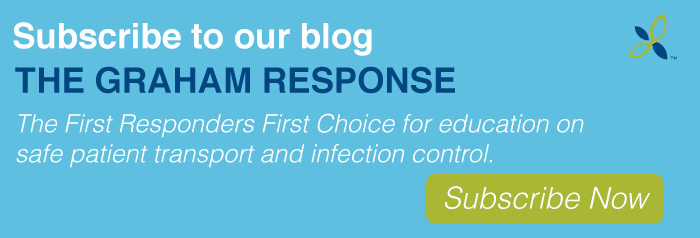 The Covid-19 pandemic places unprecedented pressure on nationwide healthcare systems and first responders. As a result, we are seeing negative effects that prolonged stress has on the mental and physical wellbeing of our emergency first responders. Other concerns, such as a general lack of PPE and understaffed facilities, are compounding matters and pushing our police, firefighters, and ambulance workers closer to burnout.
The Covid-19 pandemic places unprecedented pressure on nationwide healthcare systems and first responders. As a result, we are seeing negative effects that prolonged stress has on the mental and physical wellbeing of our emergency first responders. Other concerns, such as a general lack of PPE and understaffed facilities, are compounding matters and pushing our police, firefighters, and ambulance workers closer to burnout.
To avoid this, self-care must be championed by senior management to safeguard our first responders’ health, in both body and mind.
Know the signs for appropriate intervention
High stress levels can manifest themselves in a number of ways, some of them obvious and others less so. By knowing the signs of physical, emotional, and mental fatigue, you can take the necessary steps to support your staff before they burn out. EMS1 recommends watching out for the following:
Undue negativity that gives rise to conflict: Emotions such as anger, combativeness, self-imposed isolation, or emotional disconnection are good indicators that a person may be taking on excessive strain. These symptoms can manifest as extreme emotions that swing to either end of the spectrum, such as severe depression or a short fuse that leads to angry outbursts.
Physical abnormalities: Physical symptoms can be easier to diagnose as they manifest themselves in recognizable ways. A rapid heart rate, headaches, muscle tension such as a clenched jaw or being unable to ‘switch off’, relax, and sleep properly are clear physical signs of distress.
Compassion fatigue: Good Therapy describes compassion fatigue as “a type of stress that results from helping or wanting to help those who are traumatized or under significant emotional duress.” There is a threshold of how much care a person who is under great stress can provide. Once reached, the care administered starts to decline which can in turn further aggravate a first responder’s own symptoms.
Questionable behavior: Taking unnecessary risks or refusing to leave a scene when ordered are two signs that a person’s mental health is not where it should. Pay particular attention to a first responder’s personal hygiene and their adherence to safety protocols such as wearing PPE correctly.
Treatment and maintenance
By taking note of the above symptoms and practicing self-care, your staff can help prevent and minimize mental or physical issues before they’re able to take root and cause any lasting damage. The following steps can help them maintain mental and physical balance during stressful times.
- Pay attention to how certain circumstances are affecting them during the pandemic. Writing thoughts down or talking to a colleague or loved one is a good way for them to gain perspective.
- Exercise is a known stress-reliever, as are breathing and relaxation techniques and mindfulness. Advise your colleagues to carve out some time each day for physical activity or meditative exercises.
- They should also prioritize spending more time with friends and family, watch an uplifting movie, or wind down with a good book.
- Caffeine and alcohol can trigger anxiety, so it’s a good idea to limit them. Advise staff to be cognizant of medication and overuse — it’s easy to fall back on stress-relieving drugs, which may develop a dependency.
- Prioritize nutrition, hydration, and getting a good sleep every night.
Each day passed is a day closer to normalcy
During a storm, it can be difficult to imagine a time of calm. We forget that this crisis will one day be over and a sense of normalcy will return to life. While the efforts of our healthcare and emergency personnel will be instrumental in getting us there, it shouldn’t come at the cost of their wellbeing. We all need to support, understand, and care for one another as this crisis unfolds. Extraordinary times call for extraordinary compassion.
We at Graham Medical continue to support and appreciate those who are putting others first on a daily basis. If you found the above article useful, subscribe to our blog for more information on the COVID-19 pandemic and the instrumental role healthcare and emergency first responders play on the frontlines.

